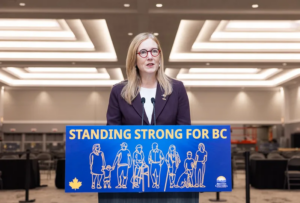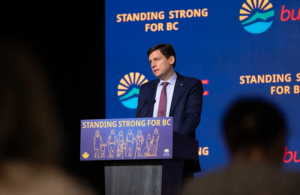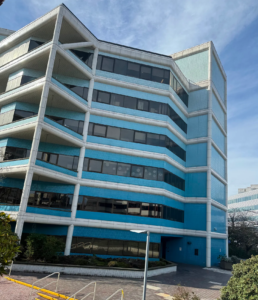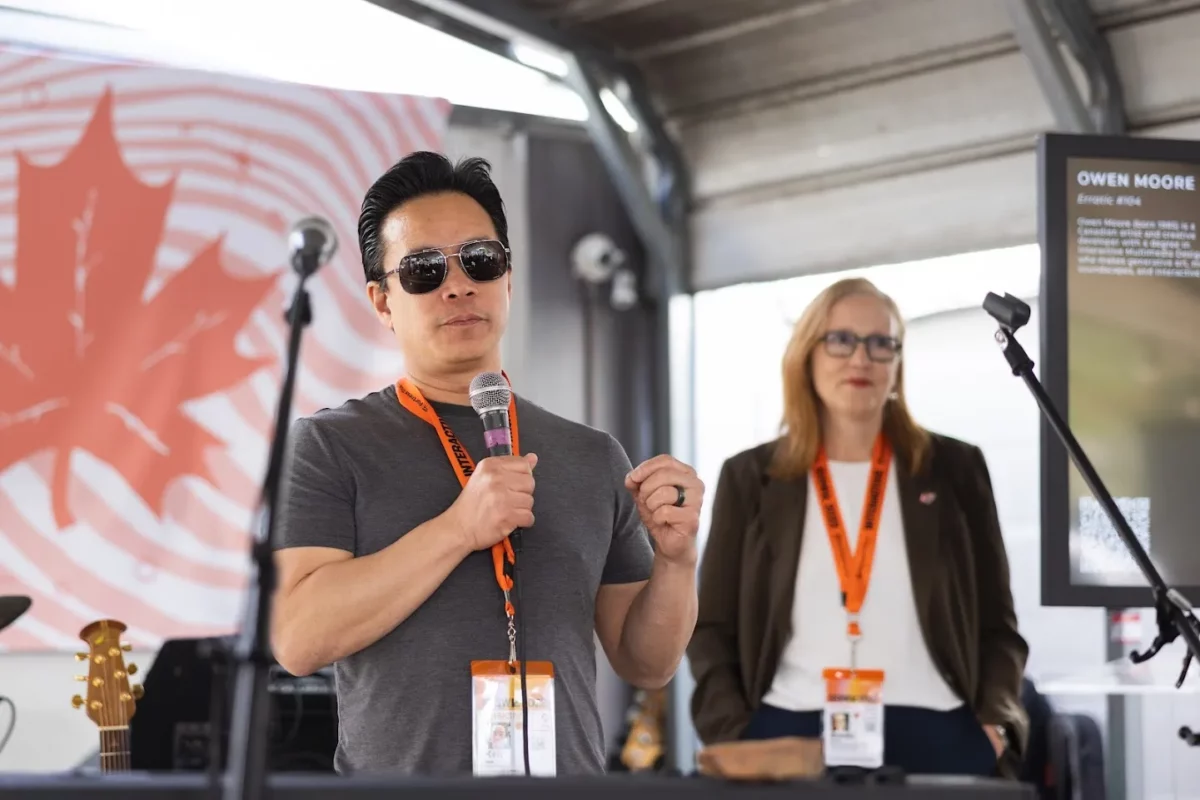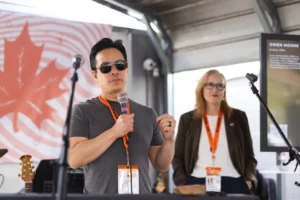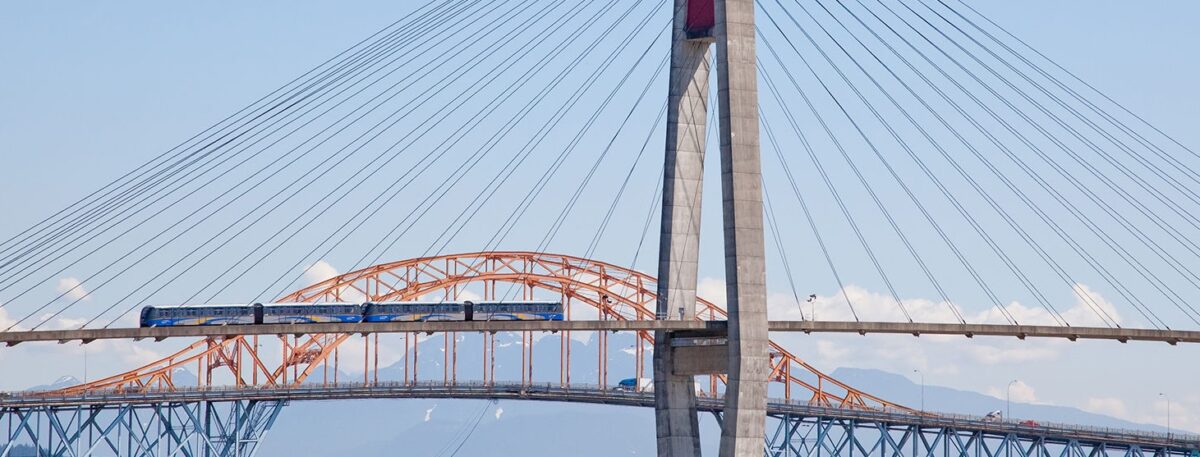Who’s who of Vancouver real estate attended Mark Carney fundraiser
Bob Mackin
A who’s who of the Vancouver real estate industry, municipal politicians and even the couple at the centre of the B.C. Housing nepotism scandal turned out to support Mark Carney’s winning bid for Liberal leadership on Feb. 12.
Carney, who will be sworn-in as Canada’s 24th Prime Minister on March 14, drew 85 people to an event at a private residence in the V6J 1G1 postal code, according to the Elections Canada list of attendees obtained by theBreaker.news.
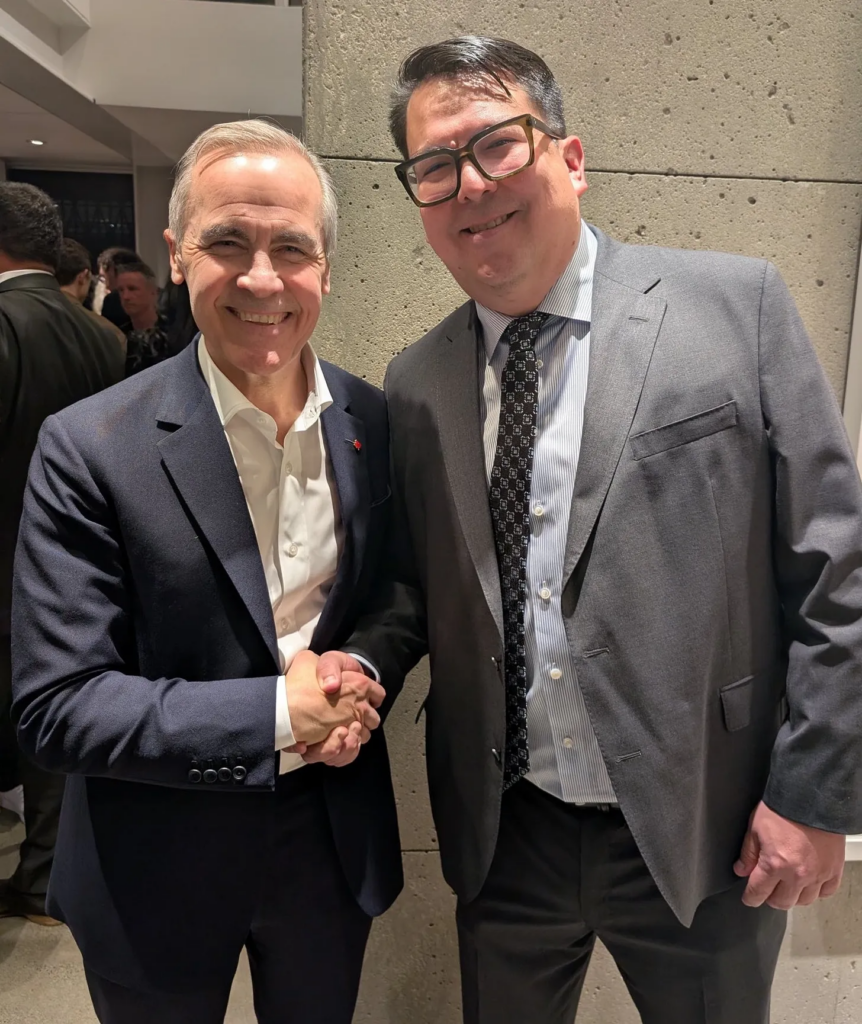
Mark Carney(left) and Wade Grant (Grant/X)
The postal code matches that of Rennie Marketing Systems. Founder Bob Rennie and son/principal Kris Rennie were on the list, along with chief operating officer Gregory Zayadi.
Notable politicos included Metro Vancouver chair and Burnaby Mayor Mike Hurley, West Vancouver Mark Sager, Vancouver city councillor Lisa Dominato, former Metro Vancouver chair Greg Moore, and Trudeau Liberal Members of Parliament Parm Bains (Steveston-Richmond East) and Randeep Sarai (Surrey Centre).
Also: former Atira CEO and Canada Mortgage and Housing director Janice Abbott and former B.C. Housing CEO Shayne Ramsay. They lost their jobs after a 2023 provincial government report found Ramsay in conflict of interest for favouring wife Abbott’s Atira Women’s Resource Society with millions of dollars in contracts.
During a March 4 Conversations Live panel discussion, Rennie said he was “working with Carney.”
“I’m trying to get a rental program in where people can buy, put it into a 25-year pool, get a preferred rate from CMHC and let’s allow foreign buyers to buy it,” Rennie said.
“They have to rent it out for 25 years and it will show the world we are open for business, because right now all of our governments are not showing that we’re open for business.”
Others who paid between $0 and $1,750 to meet and greet Carney:
- Dax Aquilini, Aquilini Group, VP investments
- Jill Atkey, B.C. Not For Profit Housing Association, CEO
- Sheila Biggers, St. Paul’s Hospital Foundation, CEO
- Nicole Brassard, Global Public Affairs, VP, former Liberal Party VP
- Mike Bucci, Bucci Developments, VP
- Suky Cheema, BDO Canada, real estate leader
- Ajay Dilawri, Dilawri Auto Group, co-founder
- Jonathan Cooper, Strand, SVP
- Rossano De Cotiis, Onni Group, president
- Geoff Duyker, Mosaic Homes, SVP
- Nabih Faris, Intergulf, CEO
- Ivan Fecan, Rogers Communications, director
- Patti Glass, Grosvenor, VP
- Byng Giraud, Sedgwick Strategies
- Wade Grant, Musqueam Indian Band, intergovernmental relations officer, and Quadra Liberal nomination candidate
- Quinten Grimm, Squamish Nation, project management specialist
- Azim Jamal, Pacific Reach, CEO
- Hassan Khosrowshahi, Wesbild, chair
- James Innis, Sutton Group, president
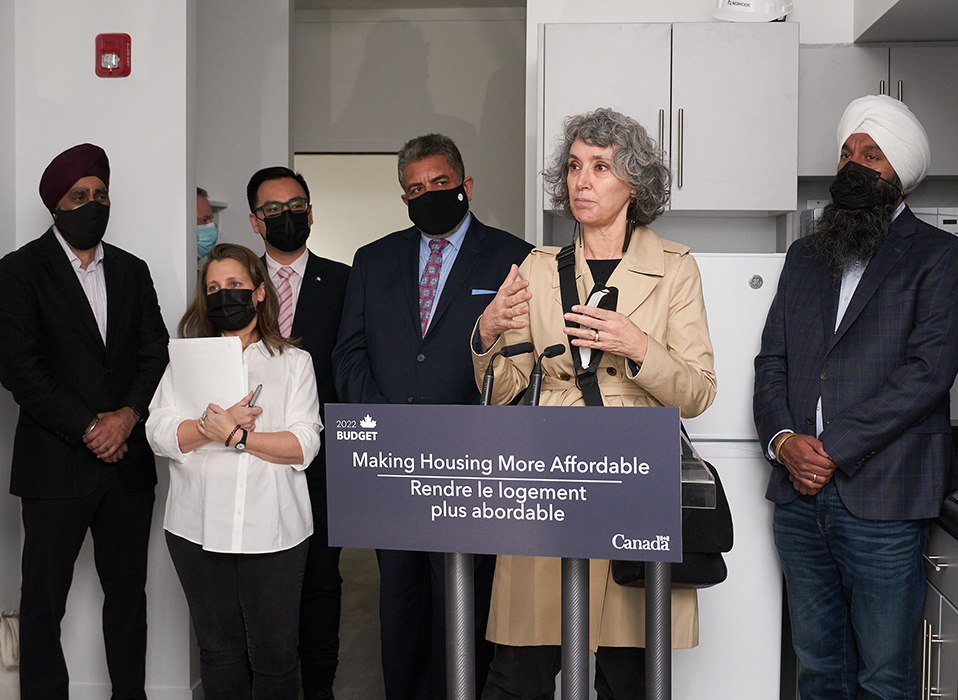
Atira CEO Janice Abbott with Deputy Prime Minister Chrystia Freeland (second from left) (Nomodic/CMHC)
- Stephen Kukucha, Fort Capital, senior advisor, Sustainable Development Technology Canada, former director
- Robert Macdonald, Macdonald Development chair
- John MacKay, Strand, managing director
- Susan MacLaurin, director, Nch’kay Development
- Anne McMullin, Urban Development Institute, CEO
- Craig Munroe, Vancouver Fraser Port Authority, director
- David Negrin, Isthmus Management, chair
- Deep Singh Sidhu, Massive Canada Building Systems Inc., chief investment officer
- Gail Sparrow, Musqueam Capital Corp., director
- Barrett Sprowson, Peterson Real Estate, VP
- Ronald Stern, Stern Partners, founder
- Ben Taddei, Conwest Developments, COO
- Khelsilem Tl’akwasikan (aka Dustin Rivers), Squamish Nation council chair
- Gurpreet Vinning, Prospectus Associates, partner
- Bruno Wall, Wall Financial chair
- Grace Wong, Chinese Canadian Museum, chair
- Wilson Williams, Squamish Nation, spokesperson
- Duncan Wlodarczak, Onni Group, chief of staff, Liberal Party of Canada in B.C. chair
NEW: Subscribe to theBreaker.news on Substack. Find out how: Click here.
Bob Mackin A who’s who of the Vancouver










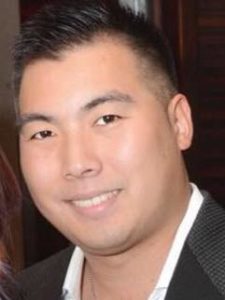

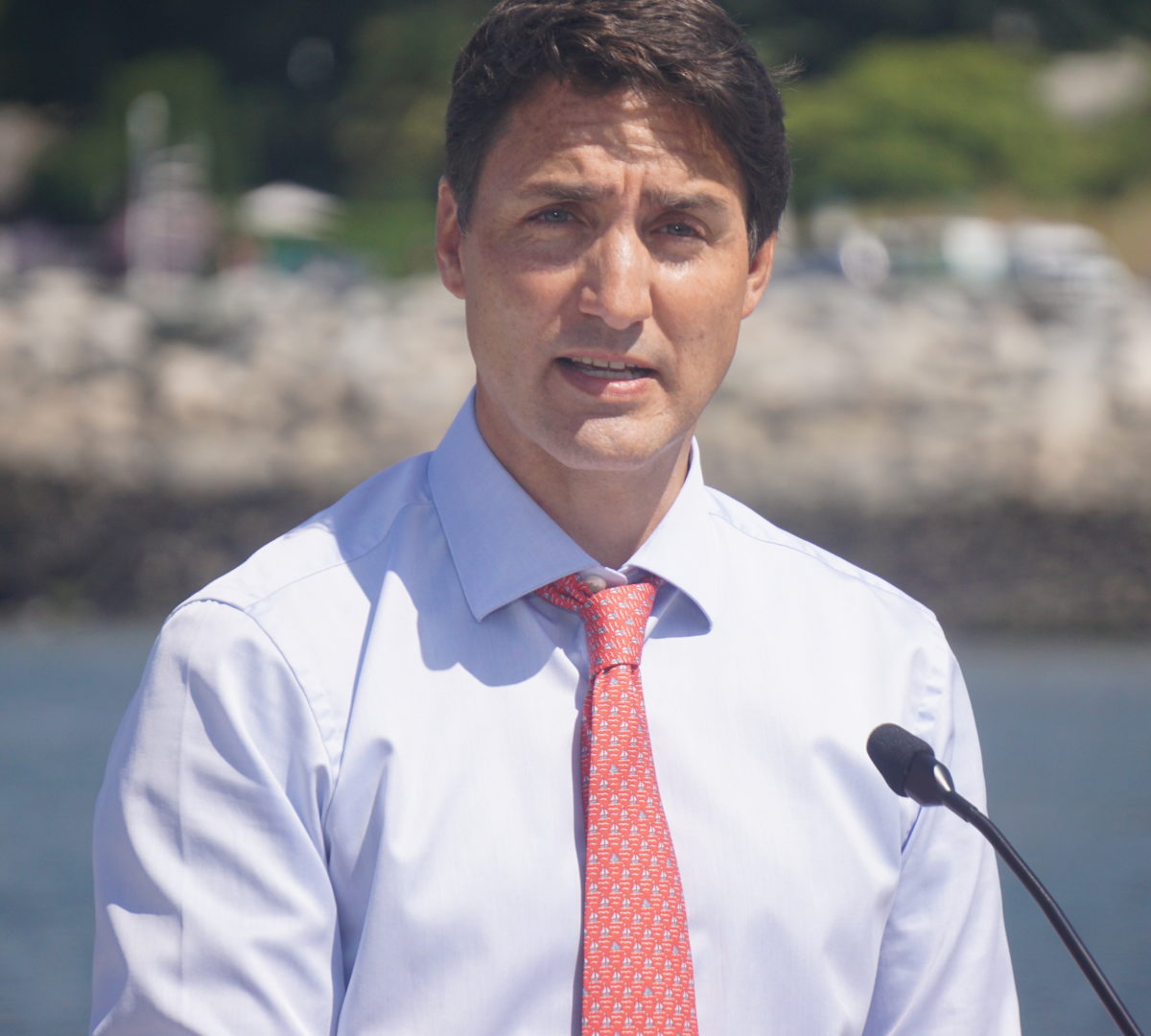


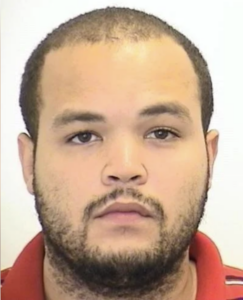


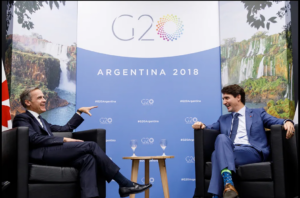
 “Minister Heyman would like to have a conversation with Mr. Carney about the relationship between financial investment trends and climate plans like CleanBC, and on behalf of Premier Horgan would like to explore if he would be willing to speak to our executive council at an upcoming cabinet meeting,” said the May 10, 2021 email from Kelly Sather.
“Minister Heyman would like to have a conversation with Mr. Carney about the relationship between financial investment trends and climate plans like CleanBC, and on behalf of Premier Horgan would like to explore if he would be willing to speak to our executive council at an upcoming cabinet meeting,” said the May 10, 2021 email from Kelly Sather.
